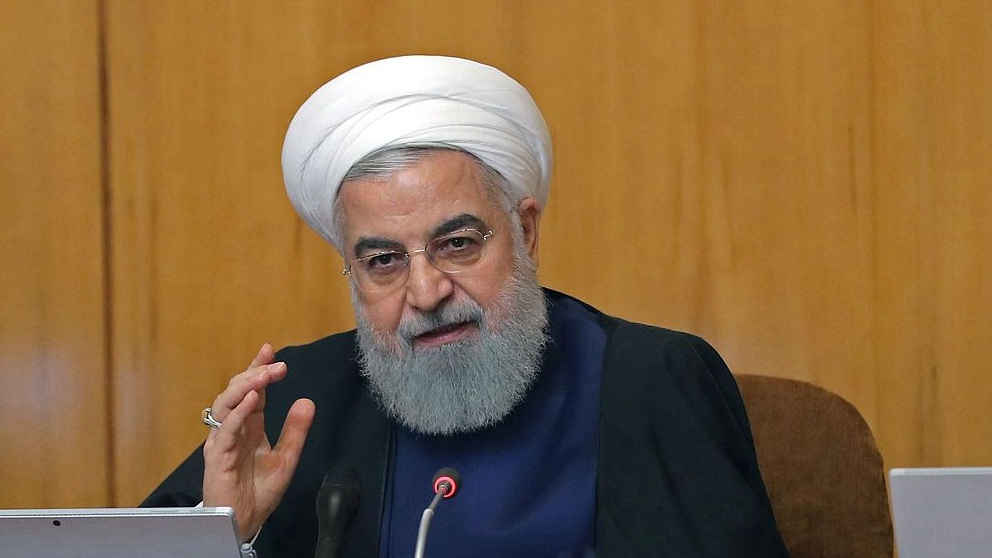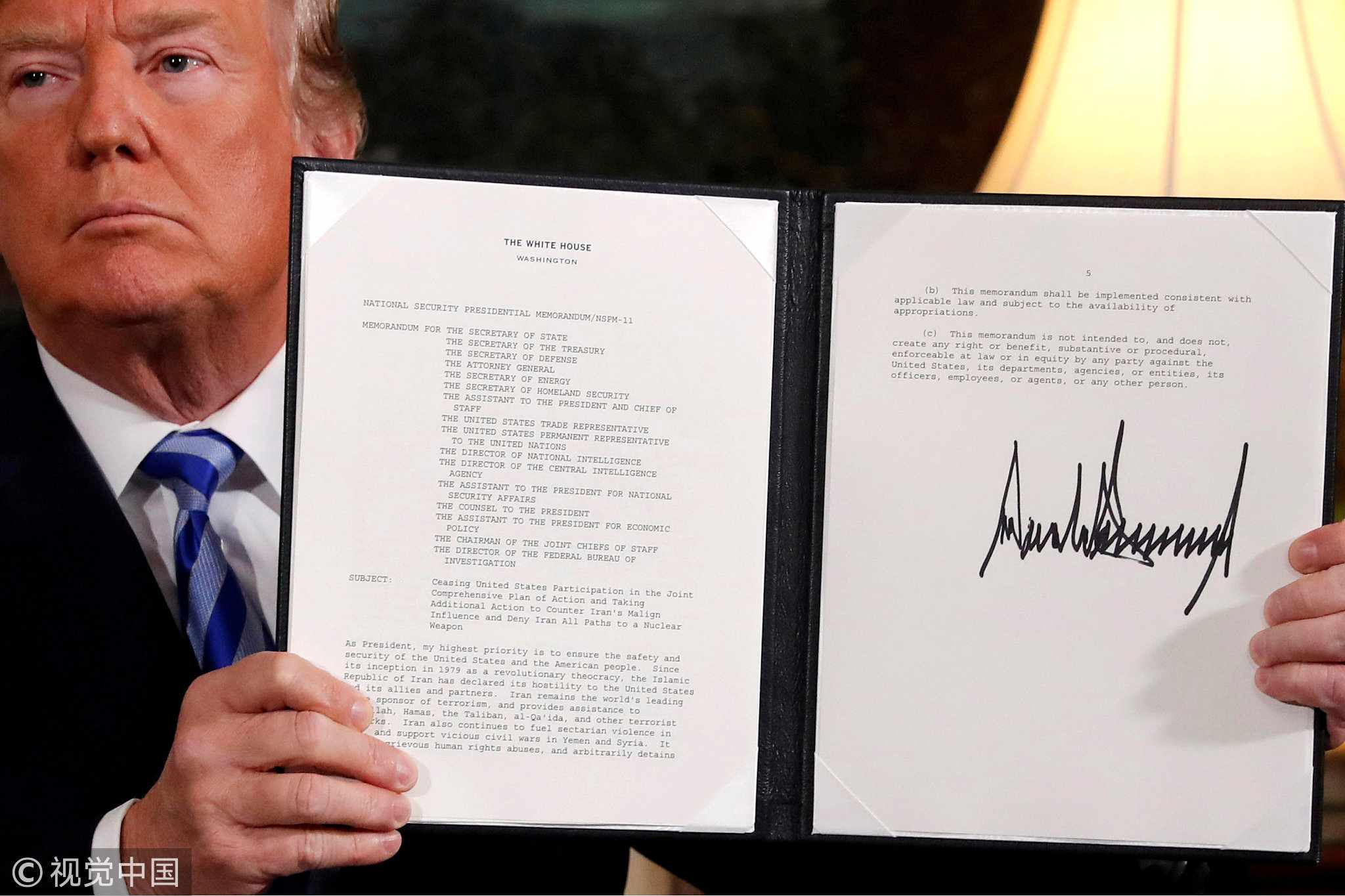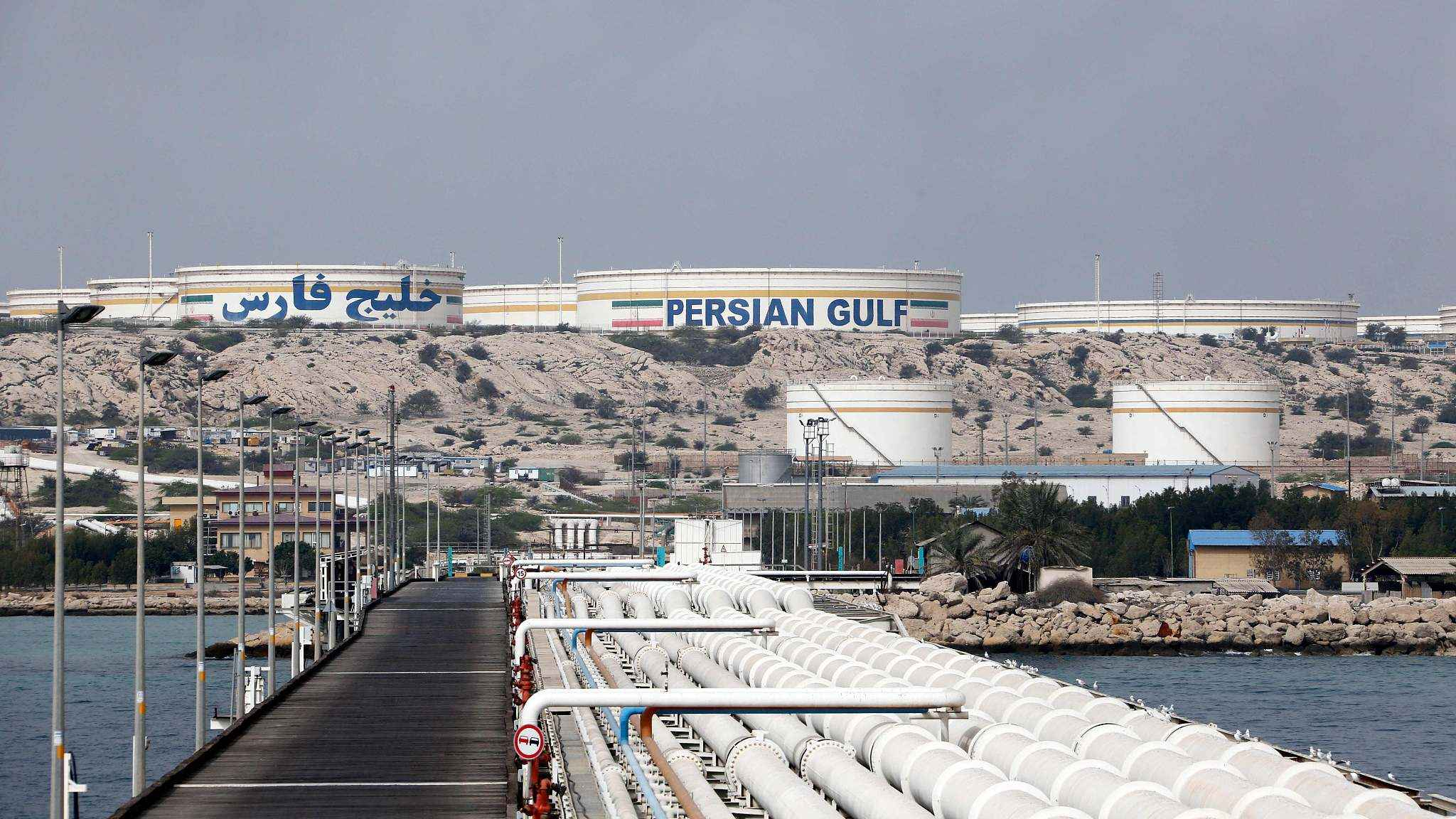
Opinion
10:03, 09-May-2019
Joint Commission could support JCPOA's continued implementation
Bobby Naderi

Editor's note: Bobby Naderi is a journalist, current affairs commentator, documentary filmmaker and member of the Writers Guild of Great Britain. The article reflects the author's opinion, and not necessarily the views of CGTN.
Iran is rolling back curbs to its nuclear program under a deal it signed in 2015 in Vienna with the U.S., Russia, the UK, France, China and Germany.
This came one year after U.S. President Donald Trump walked out of the international agreement and re-introduced unilateral sanctions - despite reports from the International Atomic Energy Agency (IAEA) that said Tehran was abiding by the historic accord.
According to Iranian President Hassan Rouhani, in 60 days Iran will resume enrichment of uranium beyond the low level permitted under the deal. This could stop if the remaining signatories protected Iran's oil and banking sectors from sanctions unilaterally imposed by the U.S.
Under the deal, Iran curbed its nuclear program in return for the lifting of sanctions. It also promised not to pursue nuclear weapons. However, with the U.S. new sanctions, President Rouhani said on May 8, that Tehran will stop complying parts of the pact, known as the Joint Comprehensive Plan of Action (JCPOA), and that the new measures do not violate the 2015 accord.
In reaction to his televised announcement, the U.K. and France said Tehran will face the consequences if it breaks the nuclear deal; Russia urged the European signatories to fulfill their obligations; China called on all parties to uphold the accord.
Russian Foreign Minister Sergei Lavrov said the situation has become complicated because of Washington's "irresponsible behavior." Kremlin spokesman Dmitry Peskov said President Vladimir Putin is still committed to the deal and there are no alternatives.

U.S. President Donald Trump holds up a proclamation declaring his intention to withdraw from the JCPOA Iran nuclear agreement after signing it in the Diplomatic Room at the White House in Washington, DC, May 8, 2018. /VCG Photo
U.S. President Donald Trump holds up a proclamation declaring his intention to withdraw from the JCPOA Iran nuclear agreement after signing it in the Diplomatic Room at the White House in Washington, DC, May 8, 2018. /VCG Photo
China has also called on "all relevant parties to exercise restraint, strengthen dialogue, and avoid escalating tensions."
More points in the margin
E.U. foreign ministers will have the first opportunity to discuss Iran's decision in Brussels next week. The hope is that any decision made by the E.U. would also support a second meeting of the Joint Commission of the JCPOA in Vienna, seeing that Iran is not leaving the JCPOA and its actions are in line with the accord.
This could also strengthen the authority of the United Nations Security Council, which endorsed the JCPOA. Despite Trump's withdrawal, the U.N. is still calling on the international civil society to implement the deal.
Perhaps, that's why France's Defense Minister Florence Parly said Paris wants to keep the deal alive: "Today nothing would be worse than Iran, itself, leaving this agreement."
You get the idea. The E.U. wants to be a player of peace and multilateralism and not a plaything of U.S. interests. If that's still the case, then it should arrange the next meeting of the Joint Commission.

An oil facility in Khark Island, Iran. /VCG Photo
An oil facility in Khark Island, Iran. /VCG Photo
This is because U.S. sanctions against Iranian entities, companies, individuals and officials violate the nuclear deal and Iran has filed a new complaint with the Joint Commission. The Commission includes representatives from the remaining countries in the accord and is coordinated by E.U. Foreign Policy Chief Federica Mogherini.
If the remaining parties meet Iran's demands by facilitating trade, Tehran sees no reason to resume its undertakings. Otherwise, it won't observe restrictions on the 3.6 percent level of uranium enrichment and the heavy water reactor.
It is, therefore, in the best interests of the region and the world to prevent yet another nuclear crisis. Iran will never be the first to violate its pledges. It won't raise the white flag and submit itself to Washington either.
Iranian people are not holding their breaths that President Trump might re-impose new sanctions. But they are holding him accountable for his ill-conceived and regrettable withdrawal. The U.S. government never lifted its sanctions even after signing the accord. Iran still cannot get letters of credit from international banks and has no access to the SWIFT banking system.
In light of all this, no responsible member of the international community would ever support Trump's new escalation against Tehran. Despite his violations and threats, the JCPOA continues to be a multilateral treaty to which the global civil society adheres. He should never be allowed to undermine the value of this multilateral diplomacy.
Hardly by accident, the Joint Commission is still the venue to rebuild trust and confidence in international institutions and arrangements that support global peace and security. The remaining parties could once again sit at the Commission's negotiating tables to "strengthen dialogue" for nuclear non-proliferation and to support the JCPOA's implementation, its sanctity and sustainability.
(If you want to contribute and have specific expertise, please contact us at opinions@cgtn.com.)

SITEMAP
Copyright © 2018 CGTN. Beijing ICP prepared NO.16065310-3
Copyright © 2018 CGTN. Beijing ICP prepared NO.16065310-3